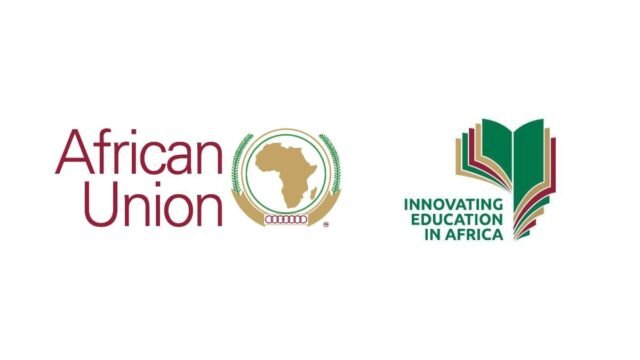For years, African classrooms have struggled with challenges ranging from overcrowding to outdated curricula and a lack of access to technology. But a quiet revolution is underway, led by a continental push known as Innovating Education in Africa. The initiative, championed by the African Union since 2018, is reshaping the way young people learn, train, and prepare for the future.
The heart of this movement is local innovation. Instead of depending only on imported solutions that may not suit African realities, the programme identifies home-grown ideas that work within communities. These ideas are then nurtured, scaled, and embedded into national education systems. Over the years, more than 180 unique innovations have been showcased, reaching thousands of learners and teachers across different regions. What makes them special is their African DNA—solutions built with the cultural, social, and economic realities of the continent in mind.
Take, for instance, rural communities where internet access is limited. Instead of waiting for full broadband coverage, innovators are using offline platforms, radio lessons, and mobile-friendly tools that can run on basic phones. The result? Children who would otherwise be left behind are gaining access to education, proving that creativity rooted in local knowledge can solve even the hardest problems.

Table of Contents
Addressing Africa’s Education Gaps Through Innovating Education in Africa
The continent faces stark realities: millions of children remain out of school, teacher shortages persist, and the labour market increasingly demands digital skills. It is against this backdrop that Innovating Education in Africa is focusing on practical solutions.
One major area is inclusivity. Policymakers are being urged to ensure that no learner is excluded—whether it’s girls in rural areas, children with disabilities, or young people from marginalised communities. Assistive technologies, community-driven learning hubs, and scholarship models are among the ideas helping bridge these gaps.
Technology also plays a huge role. Beyond the buzzwords of artificial intelligence and e-learning, innovators are finding simple but powerful ways to use tech. For example, WhatsApp is now being repurposed as a training tool for teachers, while radio continues to serve as a classroom for millions. These are not just temporary fixes; they are evidence that technology, when adapted, can close Africa’s education divide.
Another pressing gap is teacher training. No matter how brilliant an innovation may be, it cannot succeed without skilled educators. New approaches such as open educational resources, remote mentorship programmes, and digital professional development sessions are helping teachers stay updated, even in the most remote parts of the continent.

Building Sustainable and Scalable Models
The success of Innovating Education in Africa depends not only on creativity but also on sustainability. A pilot project that transforms one community is a good start, but for meaningful impact, solutions must scale across entire regions and countries.
That is why the initiative insists on innovations that are replicable and cost-effective. The goal is not just to launch flashy projects but to integrate them into public education systems so they last beyond donor cycles. Governments are being encouraged to take ownership, and private-sector partners are stepping in to provide both funding and technical expertise.
Partnerships remain the backbone of this effort. NGOs, ministries of education, community leaders, and development organisations are working hand-in-hand. In some cases, innovations are jointly funded, with costs shared between governments and private institutions to ensure long-term sustainability. This shared responsibility reduces over-dependence on external grants and strengthens local accountability.
The financial aspect is equally important. Rather than relying solely on aid, innovators are exploring models that allow their ideas to generate revenue or attract investment. This shift ensures that educational projects remain alive long after the initial funding runs out.

The Road Ahead: A Stronger Future for African Learners
Looking into the future, the vision for Innovating Education in Africa is ambitious but achievable. The priorities are clear: amplify African-led solutions, bridge the digital divide, focus on foundational skills like literacy and numeracy, and ensure that marginalised learners are not left behind.
Crucially, evidence must guide decisions. By gathering reliable data on what works—and at what cost—leaders can make informed choices that maximise resources. Monitoring and evaluation will determine whether policies succeed and where adjustments are needed.
For young Africans, the stakes could not be higher. The continent’s population is projected to double by 2050, with the majority under 25 years old. If education systems are not transformed, millions risk being excluded from opportunities in the modern economy. But if innovation continues to thrive, Africa has the chance to turn its demographic boom into a powerful advantage.
At its core, Innovating Education in Africa is not just about classrooms or curricula. It is about hope, empowerment, and dignity. It is about giving every child—from Lagos to Kigali, from rural villages to bustling capitals—the chance to learn, dream, and thrive. The future of Africa depends on how well it educates its people, and the journey of innovation is already proving that the continent has the tools, the talent, and the vision to succeed.
Join Our Social Media Channels:
WhatsApp: NaijaEyes
Facebook: NaijaEyes
Twitter: NaijaEyes
Instagram: NaijaEyes
TikTok: NaijaEyes
READ THE LATEST EDUCATION NEWS





